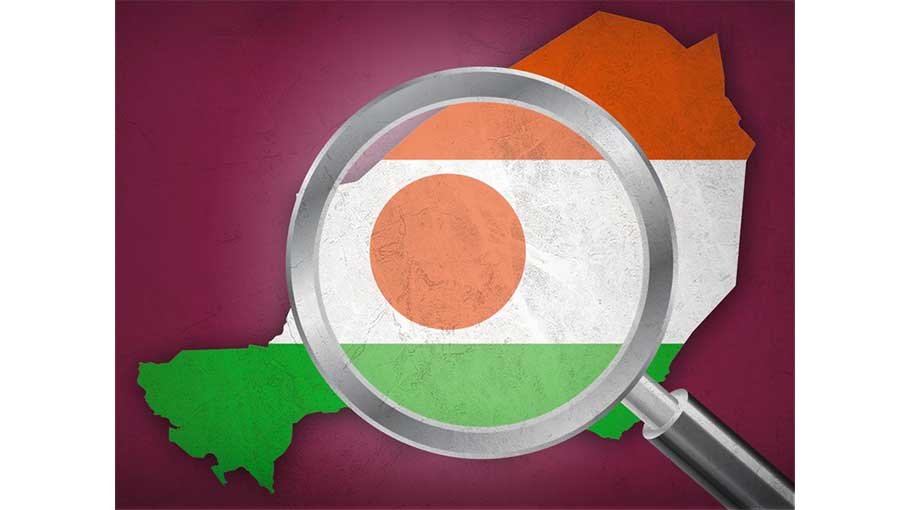Military takeover: Niger’s future hangs in the balance
As the global spotlight shifts, the international community must remain vigilant


In a daring move, Niger’s coup leaders toppled the elected government, plunging the country into uncertainty. General Abdourahamane Tchiani, the former presidential guard chief, now reigns as the head of state, but the reasons behind the coup are shrouded in mystery. Allegations of poor governance and discontent with handling security threats from Al Qaida and Daesh were cited.
The power grab, the seventh military takeover in just a few short years in West and Central Africa, has sent shock waves through the region and beyond. The African Union, the United States, the United Nations, the European Union, and other world powers have rallied together to condemn this audacious move.
Even as the international community is closely watching the developments in Niger, tensions are escalating. A coalition of West African states has given an ultimatum to Niger’s putschists — return deposed President Mohamed Bazoum to power by Aug. 6, or face military intervention.
The Economic Community of West African States (ECOWAS), a regional bloc known for its diplomatic approach, has taken drastic measures, suspending relations with Niger and sealing their land and air borders with the country.
In a high-stakes meeting held in Nigeria’s capital, Abuja, leaders from Ecowas, convened for crisis talks on Sunday to address the alarming situation of yet another coup, following recent army takeovers in neighbouring Mali and Burkina Faso.
A precarious situation
A strong message was delivered during the summit, as a resolute statement was read out, expressing Ecowas’ “zero tolerance” for coups. The regional bloc left no room for ambiguity, vowing to take decisive action to restore constitutional order if their demands were not met within a week.
But that’s not all — the situation has taken a twist as Niger’s neighbours, Burkina Faso and Mali, step in. They’re warning that any military intervention against Niamey will be seen as a “declaration of war” against their nations. Burkina Faso and Mali are both ruled by military-backed governments.
As the spotlight falls on Niger, questions arise about the country’s strategic importance. It sits on vast uranium deposits, making it a valuable asset in the global energy landscape.
The power grab, the seventh military takeover in just
a few short years in West and Central Africa, has sent
shock waves through the region and beyond. The
African Union, the United States, the United Nations,
the European Union, and other world powers have
rallied together to condemn this audacious move
Yet, paradoxically, Niger is classified as one of the “Heavily Indebted Poor Countries” (HIPC). Its economy relies heavily on subsistence agriculture and the export of raw commodities, presenting a unique conundrum.
Battle of sovereignty and stability
Niger has been a host to US drone bases and American Special Forces engaged in counterterrorism operations against Boko Haram and Daesh affiliates. The US has a significant presence, with over 1,000 service personnel stationed in the country. France, too, has a stake in Niger’s security, having moved 1,500 troops from Mali to Niger in 2022 amid declining relations with Mali.
Germany has joined France and the US, announcing its involvement in a three-year European military mission aimed at bolstering Niger’s armed forces. However, the Biden administration is treading carefully, reluctant to label the events in Niger as a “coup.”
Such a determination could lead to an immediate cut-off of security aid, affecting the delicate balance between supporting democracy and maintaining security interests.
Amid the chaos and geopolitical complexities, US Secretary of State Blinken’s words have been echoing across diplomatic corridors. During his visit to Niger in March, he hailed the West African country as a “model of resilience, a model of democracy, a model of cooperation.”
However, the situation has changed dramatically since then. Following the overthrow of President Bazoum, Blinken issued a warning that US partnership with the country depends on “democratic governance and respect for the rule of law.”
The UAE has strongly condemned the coup attempt in the Republic of Niger, and stressed the importance of maintaining stability and security in the country. In a statement, the Ministry of Foreign Affairs (MoFA) affirmed that the UAE is following with great concern the developments in Niger.
The UAE emphasised its support for the sovereignty and unity of the country within the framework of constitutional institutions and the rule of law, to achieve the aspirations of the people of Niger.
The events unfolding in this West African nation are a battle of sovereignty and stability, and the stakes couldn’t be higher. As the dust settles, and the global spotlight shifts, the international community must remain vigilant. Will Niger’s leaders heed the call of the international community?
Sadiq Shaban is OpinionEditor at Gulf News.
Source: Gulf News


